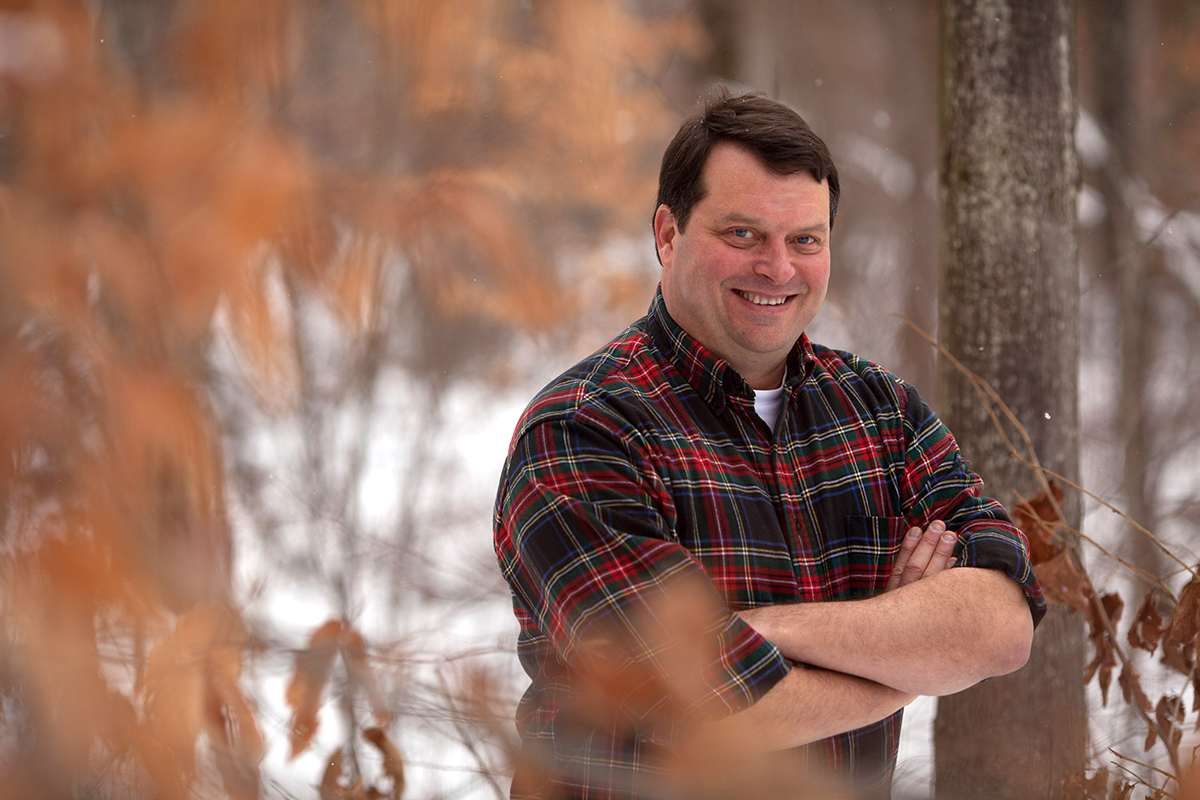“Some say the world will end in fire, some say in ice,” reads a famous 1920 poem by Robert Frost.
But entomologist John Wenzel considers another possibility: loss of insect populations.
“If you were to sweep away all the insects, the world that you and I know would collapse in a matter of weeks,” Wenzel said.
Wenzel, director of the Powdermill Nature Reserve at the Carnegie Museum of Natural History, remains optimistic: He believes there is still time to rescue such populations. This week, he will bring his expertise to Chautauqua Institution, leading two talks for the Bird, Tree & Garden Club.
At 12:15 p.m. Monday in Smith Wilkes Hall, Wenzel will present a Monarch Moments talk titled “2,500 Miles on a Wing and a Prayer.” He will also give a Brown Bag lecture titled “Where Have The Bees Gone, And What Can We Do?” at 12:15 p.m. Tuesday in the same location.
Wenzel, who previously worked as an entomology professor at the Ohio State University for 17 years, first started studying insects at age 19 as a field assistant to the prominent biologist E.O. Wilson. He spent his early career studying the behavior and activity of social insects such as ants, bees and wasps, traveling to remote locations in 35 countries.
“One of the things you can do when you’re a good entomologist is you can work forever. You can never exhaust a topic because there are so many insects,” Wenzel said. “In your very backyard, no matter where you live, there’s some kind of cool insect doing something.”

Over time, Wenzel became more interested in insect conservation than conducting specialized research.
“I felt that I wanted to do things that had more real-world consequences than the kind of esoteric research that I was doing in the lab at the time,” he said.
At the Powdermill Nature Reserve, Wenzel conducts research related to large-scale conservation efforts, namely preserving ecology in Eastern U.S. deciduous forests. His interests also extend to protecting monarch butterfly populations, the focus of today’s Monarch Moments talk.
The main point of his talk, he said, is that people should not solely blame butterfly habitat destruction in Mexico for population loss of monarchs. The problem stems from agricultural development in the Great Plains, Wenzel said. The monarchs’ population has declined by over 90 percent in the last two decades, according to the National Wildlife Federation.
“We destroyed the monarch habitat first,” he said. “The pecking away at the forest in Mexico, that may be a critical thing today but that’s not the first assault on the monarch butterflies.”
Wenzel’s research has also involved studying populations of bees, which he will discuss at Tuesday’s Brown Bag lecture. His talk will center on the difference between honeybees and native bees.
Until recently, Wenzel said, most researchers and the public largely focused on honeybees and not on native bees. Honeybees were initially brought to the Americas by European settlers, while native bees dwelled here centuries before and contribute more to pollination, according to the U.S. Forest Service.
“We should be learning to manage native bees more than we do, we should be learning about their capacity, and we should be learning to protect them,” Wenzel said.
Honeybees either don’t pollinate or aren’t effective at pollinating many varieties of fruits and vegetables in the United States, he said, while native bees have been shown to be more effective. A lack of research on native bees, though, limits how much people know about the bees’ population.
One 2013 study, for example, indicated that 50 percent of native bees species disappeared from their original habitat over the past 120 years.
“When you get people who are making decisions about how to manage their landscape and they’re not paying attention to populations of native bees, they tend to plow over the bees, or destroy the bee nesting ground without paying any attention,” Wenzel said. “Then they lose their bees, and that’s not good.”
The solution, Wenzel said, comes down to educating people about the insects that surround them.
“People are not going to work to protect something that they don’t know about, so education becomes critical,” he said.




